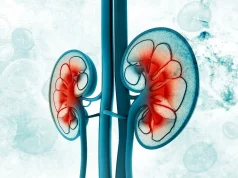Updated review and meta-analysis show beneficial effect for CABG for long-term mortality
THURSDAY, May 5, 2016 (HealthDay News) — For patients with end-stage renal disease (ESRD) referred for coronary revascularization, coronary artery bypass grafting (CABG) is associated with a small decrease in long-term mortality compared with percutaneous coronary intervention (PCI), according to a review published in the May 15 issue of The American Journal of Cardiology.
Ashok Krishnaswami, M.D., from the Kaiser Permanente San Jose Medical Center in California, and colleagues performed an updated systematic review and meta-analysis of observational studies comparing CABG and PCI in patients with ESRD for the primary outcome of long-term mortality. Observational studies published after 2011 were included to ensure overlap with previous studies; seven new studies were included for a total of 23. The median sample size was 125 patients (25 to 15,784), with large variation seen in adjustment for covariate risk.
The researchers found that CABG correlated with a small reduction in mortality (relative risk, 0.92), with considerable heterogeneity (I² = 48.6 percent). The summary estimate trending toward survival benefit of CABG was confirmed in subgroup analysis categorized by year of study initiation; in addition, after 2004 there was a considerable decrease in heterogeneity (I² = 0 percent).
“The generalizability of the finding to all patients with ESRD referred for coronary revascularization is limited because of a lack of known indications for coronary revascularization, substantial variation in covariate risk adjustment, and lack of randomized clinical trial data,” the authors write.
Copyright © 2016 HealthDay. All rights reserved.








